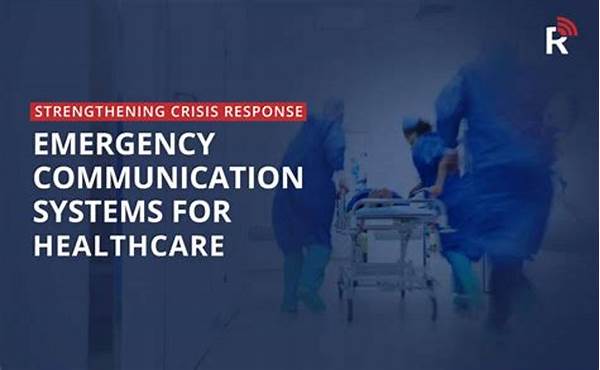
Strengthening Healthcare Systems During Crises
- Daniel Anderson
- 0
- Posted on
In today’s fast-paced world, health crises can hit us out of nowhere, leaving healthcare systems scrambled to meet the demand. When push comes to shove, strengthening healthcare systems during crises is not just important—it’s mission-critical. The key is developing an adaptable, resilient system that can handle any curveball thrown its way. So let’s dive into how healthcare systems can bulk up to take on any crisis like a champ.
Read Now : Journey Through Post-love Pain
Resiliency in Action
When it comes to handling emergencies, healthcare systems need to be ready to rock and roll at a moment’s notice. Strengthening healthcare systems during crises involves having a well-oiled operation that can seamlessly swing from handling routine care to full-blown emergency mode. It’s like flipping a switch! But to do this, we need not just resources, but also a workforce that’s as adaptable as a Swiss Army knife. Healthcare facilities need to coordinate like a band playing in perfect harmony, ensuring that all parts are working in sync. Plus, technology is a game-changer—it allows for quick data sharing and helps make informed decisions faster than you can say “stat!” Ultimately, a strong healthcare system is one that learns and evolves from past hiccups, constantly striving for improvement to be ready for whatever the next crisis throws its way.
Mental Health Matters
Tackling health crises isn’t just about physical health; mental health is a piece of the puzzle too. Many folks don’t consider how stress and anxiety skyrocket during crises. Strengthening healthcare systems during crises means integrating mental health support as well. Healthcare workers are superheroes, but even they feel the heat and need to decompress. Having a robust support system for mental health ensures that healthcare warriors remain in top form to handle any situation. This support extends to patients and their families too, providing a holistic approach to healthcare that covers mind and body alike.
Tech to the Rescue
In our tech-savvy world, digital tools are a major asset in beefing up healthcare systems during crises. Telemedicine, AI, and data analytics are not just buzzwords—they’re the backbone of a modern, resilient healthcare system. Telemedicine allows doctors to reach patients wherever they are, eliminating barriers to care. AI can help predict trends and allocate resources effectively, reducing the strain on healthcare facilities. Data analytics serve up real-time information that decision-makers can use to craft smart strategies on the fly. So, in the grand scheme of things, embracing technology is essential for strengthening healthcare systems during crises—it keeps them nimble, adaptable, and ahead of the curve.
Communication is Key
In any crisis, information is king. A well-communicated plan that everyone—from the head honcho down to the newest intern—understands is crucial. Strengthening healthcare systems during crises involves having a rock-solid communication strategy. It’s like a game of telephone, but in this case, the message has to reach every nook and cranny without distortion. From instant updates on a hospital’s intranet to public messages for local communities, clear and precise communication ensures everyone is on the same page. This way, staff, patients, and the public know exactly what’s going on, what the risks are, and how to respond.
Adapt or Bite the Dust
If healthcare systems don’t evolve, they risk becoming obsolete. Strengthening healthcare systems during crises is all about being flexible, willing to change tactics as the situation evolves. Remember, crises don’t play by the rules, and the systems that hang in there are the ones that can pivot swiftly. Policies might need tweaking on the fly, and processes should allow for rapid changes to meet the unique demands of any situation. In a nutshell, flexibility is the secret sauce that keeps healthcare systems thriving, no matter what challenges pop up.
Read Now : Endeavor For Authentic Comprehension
Power of Partnerships
Banding together, healthcare facilities can combine strengths to fend off crises effectively. Building and maintaining strong partnerships, whether it’s with other hospitals, governmental bodies, or community organizations, can be a dealbreaker. Collaboration breeds innovation, and in times of crisis, a united front is always more formidable. Strengthening healthcare systems during crises involves being in sync with both internal and external partners, ensuring seamless cooperation for optimal results. By fostering a network that’s strong and reliable, healthcare systems can deliver better care across the board.
Lessons Learned
When the dust settles and a crisis passes, it’s time to hit the books. Evaluating what went right, what went wrong, and how similar issues can be handled better next time is essential. Strengthening healthcare systems during crises hinges on embracing a culture of continuous improvement—one that doesn’t shy away from acknowledging mistakes but learns from them. This process ensures that lessons are not just stockpiled for the next time but are woven into the very fabric of how systems operate, making them more robust and ready for any future challenges that might come their way.